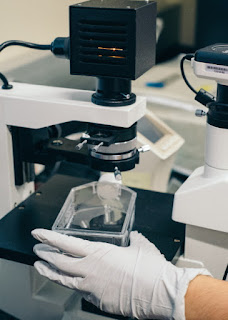Evolutionists Alarmed by Not-Random Mutations
Atheists and evolutionists claim to rely on fish-to-fool evolution being a process that relies on chance mutations — with some intangible pressures from the environment thrown in. Except when they invoke evolution as a deity that makes choices and something evolved because or for a purpose, which is teleology. Streng verboten!
Some evolutionists believe that the current belief in the way mutations operate is actually harmful to Darwinism. Although they will not leave their religion of evolutionism in a steamy plop on the trail where it belongs, they are seeing that adaptations are not exactly purposeless after all, and that organisms adapt. Of course, they do not want to commit the ultimate heresy and admit that organisms were designed by the Master Engineer to adapt, nosiree.
 |
| Credit: Unsplash / Jaron Nix |
Increasing numbers of evolutionists question the validity of their own theory of evolution everyone is taught in school. A recent challenge came from a paper with the intriguing title, “What is mutation? A chapter in the series: How microbes ‘jeopardize’ the modern synthesis.”To read the entire article, click on "Purposeful Genetic Changes Challenge Evolutionary Theory".
Some may ask: What is the “modern synthesis?” The modern synthesis is the technical name for the classic view of evolution that has held sway for over 80 years. It couples two unproven conjectures into a two-step process that are said to explain how adaptation and evolution happen. The first assumption is that the genetic variability, needed to fuel evolution, is produced through random genetic mutations within a given population. The second step envisions that this genetic variability is then fractioned out in the population through deadly struggles to survive. . . .
Why is the modern synthesis seen as important? The consensus among evolutionists is that the modern synthesis is a thoroughly natural, essentially anti-design way to explain why creatures only look like — but are not actually — designed to fit their environments.